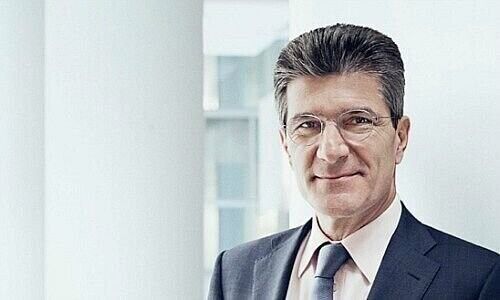Lombard Odier’s senior managing partner Patrick Odier, spoke to finews.com about what is different about this year’s Building Bridges conference and explained what is at the source of greenwashing.
This year’s four-day conference on sustainable finance is the third time that Geneva brings together the finance sector, the United Nations, non-governmental organizations, government agencies and academia to talk about how to finance the transition to reach the UNs social development goals.
The event is taking place at a time when the war in Ukraine has changed the way we talk about investments in defense companies, countries have had to backtrack on their departure from fossil and nuclear energies and the financial industry has seen cases of greenwashing.
Same Language
This backdrop, could be argued, presents all the more reason to get everyone around the same table and most importantly for Building Bridges chair Patrick Odier, start «speaking the same language.»
Although progress has been made in terms of understanding what it takes to achieve a sustainable transition since the COP meeting in Paris in 2015, in his eyes, establishing common understanding, definitions and standards still remain key to making the transition possible.
Complexity of Sustainability
He also sees it as central to avoiding greenwashing, considering that «the source of greenwashing lies in the complexity of the sustainability concept,» he said, acknowledging that climate topics and sustainability are also difficult for scientists and politicians to get their heads around.
Odier sees the financial sector, which he has worked in as a descendant of the founding family of Geneva-based private bank Lombard Odier, as one of several «levers» that will enable the transition to a net zero economy by 2050.
Driving Force
Today, Odier says there is barely anyone not interested in understanding how to measure planet warming.
«Many of our clients are surprised to find out that in addition to performance and risk, these measurements can be included in their portfolio analysis. The metrics of temperature speak to them and is easy to understand.»
Not only private banking clients but also retail clients and anyone with a pension fund can be a driving force behind the movement to get companies to allocate more capital to renewable energies, he said.
Excess Return
What’s more «the world has never been as interesting in terms of investing opportunities because 95 percent of the industries in our current economic model will be affected by the transition,» he added.
Besides generating a higher excess return than traditional investments, sustainable investments could be forcing financial fiduciaries to rethink their core task and broaden the sense of the concept.
Assuming it is the obligation of fiduciaries to act in the best interest of their clients, «perhaps it is time to go beyond just helping them achieve higher returns on their investments and go one step further and see it as an obligation to educate all account holders about the impact their investments have on the planet and society and hence the risks they are taking,» he said.




































